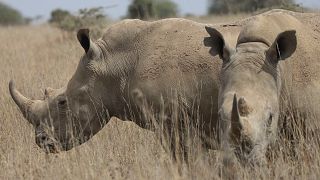South Africa
South Africa recorded a significant decline in rhino poaching in 2024, with 420 animals killed for their horns compared to 499 the previous year—a roughly 16% decrease, according to the country’s environment ministry.
The drop is partly attributed to an ongoing dehorning programme in KwaZulu-Natal, a region previously hardest hit by poachers. However, Environment Minister Dion George expressed concern over a rise in poaching incidents within the iconic Kruger National Park, where 88 rhinos were killed last year, up from 78 in 2023. The vast and remote nature of the park makes it difficult to police, posing an ongoing challenge for conservationists.
South Africa is home to nearly half of Africa’s critically endangered black rhino population and the world's largest population of white rhinos. Rhino horns, made of keratin—the same protein found in human nails and hair—are highly sought after in parts of East Asia for use in traditional medicine and jewelry.
To combat poaching, the government has introduced stricter security measures, including lie-detector tests for staff in key poaching hotspots like Kruger and Hluhluwe-iMfolozi parks.
Despite South Africa's progress, the crisis persists across the region. Neighboring Namibia reported a rise in rhino poaching last year, with cases increasing from 69 in 2023 to 83 in 2024, highlighting the continued threat to these endangered animals.











00:53
Lagos Fashion Week wins category at annual Earthshot awards ceremony
01:02
Cotswold park welcomes Markus, a rare white rhino calf
02:02
African penguin faces extinction despite new protections
01:58
Kenyan engineer turns deadly water hyacinth into eco-friendly innovation
01:55
South African conservationists mark World Rhino Day amid rising poaching threat
Go to video
Oscar winner and champion of independent film, Robert Redford, dies at 89